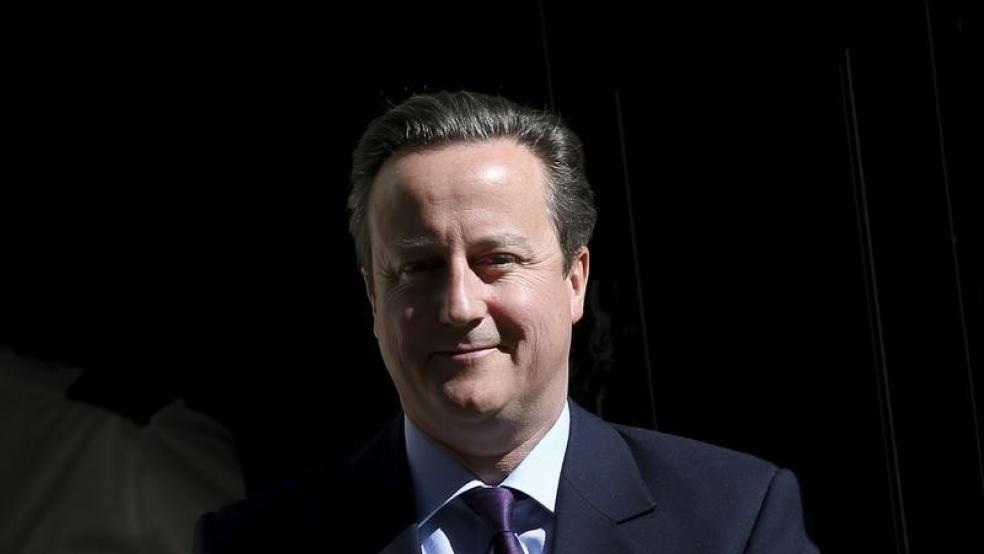U.S. presidential candidates have a long history of using the United Kingdom as a safe place to go when they need to burnish their foreign policy bona fides without taking any serious risks. The Brits have been the United States’ most steadfast ally, and when a U.S. presidential candidate visits – even if it’s one with little chance of ever actually sitting in the Oval Office – they are generally shown considerable respect and hospitality.
So it’s something of an achievement when a leading contender for the presidency provokes a public denouncement from Britain’s Prime Minister without even setting foot on British soil.
Related: Rubio Outshines Trump, Cruz in Foreign Policy Debate
Prime Minister David Cameron called the candidate “divisive, stupid, and wrong” while addressing Parliament on Wednesday. And the subject – could there be any doubt? – was Donald Trump.
Before getting into the details, it’s important to understand how tolerant the Brits generally are regarding U.S. presidential candidates. Governors with no significant foreign policy experience are patiently listened to in meetings at the famed foreign policy think tank Chatham House. Senior intelligence officials deliver serious briefings to people with little or no likelihood of having to act on the threats they describe.
Despite the best of intentions on all sides, it doesn’t always go well.
Earlier this year, Louisiana Governor and erstwhile presidential candidate Bobby Jindal traveled to London and embarrassed himself by giving a speech in which he insisted that large parts of British cities had been essentially taken over by their Muslim citizens, and that police were afraid to go there. The claim was roundly ridiculed across the country.
Related: How Nine GOP Rivals Attacked Trump’s Plan to Exclude Muslims
Wisconsin Gov. Scott Walker also traveled there this year before abandoning his presidential campaign and managed to make waves by refusing to answer any substantive questions at all Chatham House – including one posed by a desperate moderator about whether or not he believes in the theory of evolution.
Mitt Romney, in 2012, managed to insult the entire City of London by suggesting that he was unimpressed with its preparation to host that summer’s Olympics. Then he breached protocol by announcing that he had received a briefing from the country’s secretive foreign intelligence service, MI6.
The point is, the candidates are always allowed to come, and when they do, are met with civility and willingness to listen.
Trump, though, as he has done in so many other realms of the campaign for the Republican 2016 presidential nomination, has done something few of his predecessors have managed. In his role as presidential candidate, he has aggravated the British public, and its leaders, without even bothering to cross the Atlantic.
Related: Angry Mob or Trump Rally? It Can Be Hard to Tell
(To be clear, Trump in his alternate role as businessman has done plenty to annoy residents of the U.K. His development of golf properties in Scotland, for example, has generated much bad blood with local governments.)
It was Trump’s plan to ban any and all Muslims from entering the United States that seems to have tipped the balance with the British public. A little more than 5 percent of the U.K. is Muslim, and as of early this week, more than 560,000 Britons had signed an online petition calling for the government to ban Donald Trump from entering the United Kingdom.
The petition easily crossed a threshold that requires members of Parliament to consider debating the proposal. While there was never any real chance of the U.K. banning Trump from entering, the issue made it to the floor of Parliament on Wednesday.
Cameron was asked by a Muslim MP whether he would agree to the ban. Cameron said he would not, but added, “I think his remarks are divisive, stupid and wrong and I think if he came to visit our country, he would unite us all against him.”
That’s either going to make for some seriously awkward (but classy!) state dinners during the Trump presidency, or it’s going to signal to the U.S. voting public that a billionaire former reality television star might not be the best choice to represent the country on the world stage.





